International Training & Tutoring Offer – IRSN Academy
Through the IRSN Academy, the IRSN offers a variety of international training programs. These programs cover a range of essential skills in the fields of radiological emergency response, nuclear safety and security, as well as radiation protection. Delivered by IRSN's top experts, these courses provide an integrated approach to train professionals in effectively managing risks related to nuclear activities. Some courses are also part of the INSC, an initiative led by the European Commission.
The use of specialized software is also central to several courses.
In addition to this, the IRSN Academy offers you tutoring support from our experts, which will allow you to support them in their daily lives, for an understanding of their work and their habits. An immersive course for you to train with the best experts of our institute.
Project Information - European Commission's Approach
As part of its Development and Cooperation Program, the European Commission has set up a Training & Tutoring (T&T) initiative under INSC, its Instrument for Nuclear Safety Cooperation.
The T&T initiative has been implemented in successive phases since the beginning of January 2012 through contracts with ENSTTI until 2020 and IRSN from 2021.
The T&T initiative combines training and tutoring activities for employees of the Nuclear Regulatory Authorities (NRA) and Technical Safety Organizations (TSO) of INSC partner countries.
Training and tutoring activities are organized within European NRAs and TSOs and are delivered by senior professionals from these organizations.
For the past years, it also involves organizing some regional training activities to bring in participants from regions outside INSC partner countries.
INSC's Philosophy
Capacity building in nuclear safety, nuclear security and radiation protection covers a wide range of scientific and technological disciplines, and nuclear and radiation safety requires highly professional expertise in broad areas of nuclear technology.
The construction of this expertise is more than a matter of education, as it involves transferring practical knowledge and culture. This transfer is best done by senior experts from Nuclear Regulatory Authorities (NRAs) and Technical Safety Organizations (TSOs) that actually work in the areas that are relevant to regulatory practices. The quality of training in safety and security assessment depends on the practical expertise of the trainers. That safety training has to be implemented in educational planning through NRA - and TSO - informed teaching programs.
Project management
Project Manager: Ms Elektra TSlGARIDAS, Elektra.TSlGARIDAS@ec.europa.eu
Project Contractor: IRSN
Project website : EUROPAID Development and Cooperation - Instrument for Nuclear Safety Cooperation - Training & Tutoring
For more information: https://ec.europa.eu/jrc/en/about/jrc-in-brief
INSC Partner Countries Involved in Training & Tutoring Projects
List of INSC partner countries involved in Training & Tutoring projects
Next Training
Implementing Nuclear Safeguards in practice - Online Session - 2-12 December 2024
Inscription : Contact us : training-tutoring@irsn.fr
Several training programs are offered by the IRSN Academy
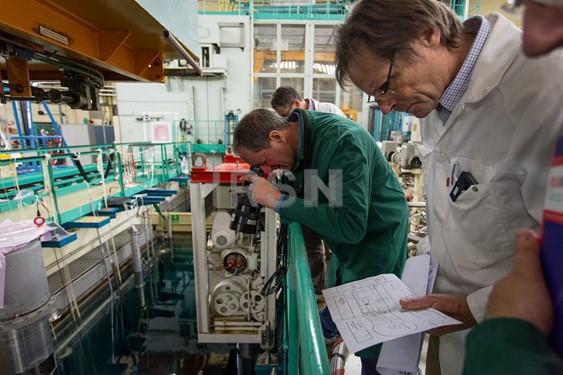
Implementation of Nuclear Safeguards in Practice
In the field of non-proliferation, the Implementation of Nuclear Safeguards in Practice course addresses the practical methods for implementing nuclear safeguards. It covers the techniques and technologies used to monitor nuclear materials and ensure they are not diverted for military purposes, including modules on inspections and information management.
Next Training :
Implementing Nuclear Safeguards in practice - Online Session - 2-12 December 2024
Inscription : Contact us : training-tutoring@irsn.fr
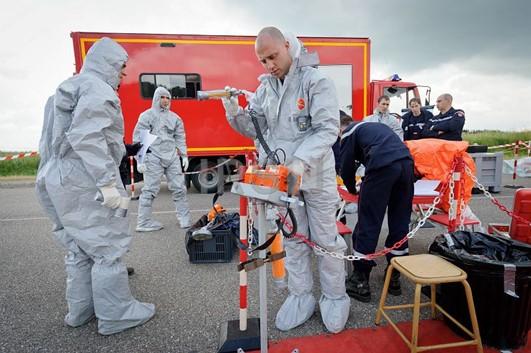
National Emergency Preparedness and Response System
The National Emergency Preparedness and Response System course is designed to prepare participants to handle radiological emergencies on a national scale. It covers organizational structures, responsibilities, and the necessary procedures and tools to effectively respond during an emergency. Case studies and practical exercises are used to assess and improve preparedness for these critical situations.
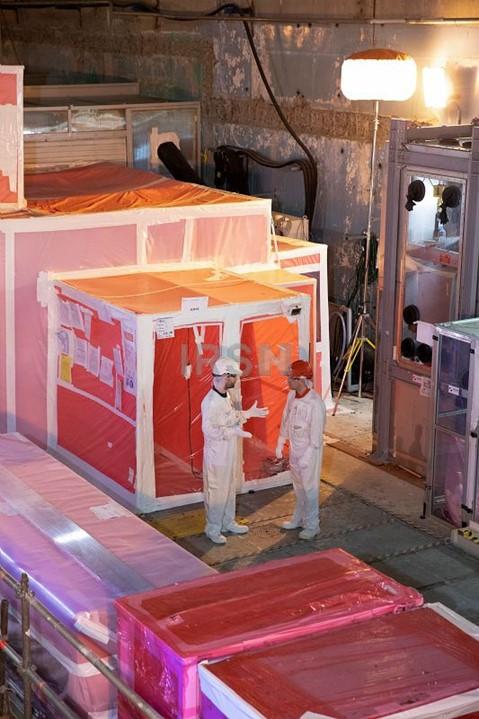
Decommissioning Safety
The Decommissioning Safety course focuses on safety during the decommissioning of nuclear installations. It addresses the relevant regulations and best practices for minimizing risks associated with this process. The training also covers the management of radioactive materials during the closure of installations to ensure safety at every stage of decommissioning.
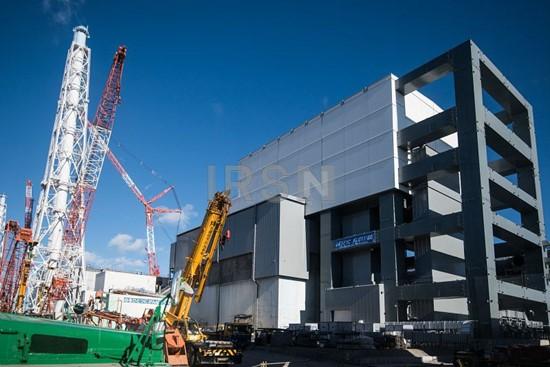
Lessons Learned from the Fukushima Daiichi Accident and EU Stress Tests
The Lessons Learned from the Fukushima Daiichi Accident and EU Stress Tests course is particularly relevant as it examines in detail the lessons learned from the Fukushima accident. It also covers the measures taken by the European Union to assess the resilience of nuclear power plants in extreme situations, with an emphasis on the safety improvements that followed.
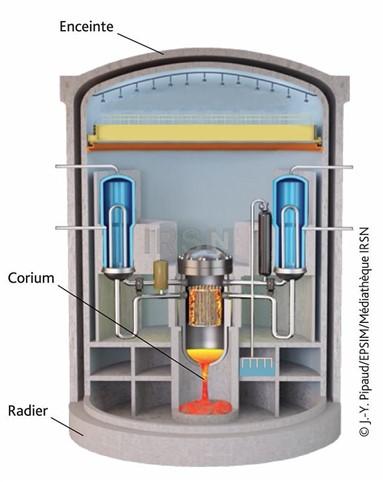
ASTEC software
The ASTEC software (Accident Source Term Evaluation Code) allows for the assessment of the consequences of a nuclear accident by modeling the release of radioactive materials into the environment. Participants learn how to install, configure, and interpret the results of this software for various accident scenarios.
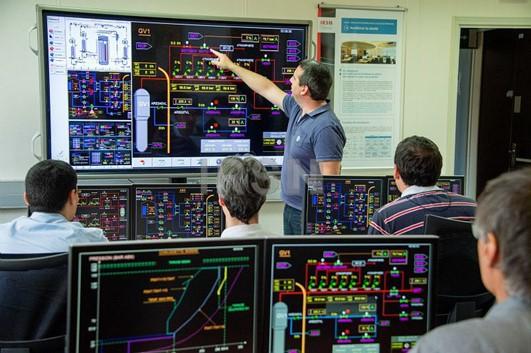
SOFIA software
The SOFIA software (Simulator for Observation of Incidental and Accidental Functioning) is a simulation tool that reproduces the behavior of a nuclear reactor during incidents or accidents. This training helps engineers anticipate the reactor's responses under various critical conditions, thus reinforcing safety strategies.
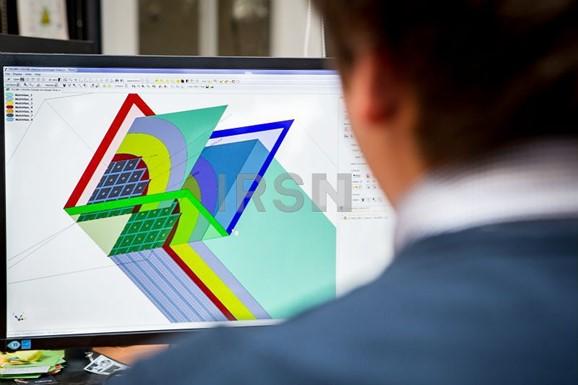
CRISTAL V2 software
The CRISTAL V2 software is dedicated to criticality safety calculations. The training allows participants to master this tool, which evaluates and prevents criticality risks by modeling complex nuclear configurations to ensure the safety of operations.
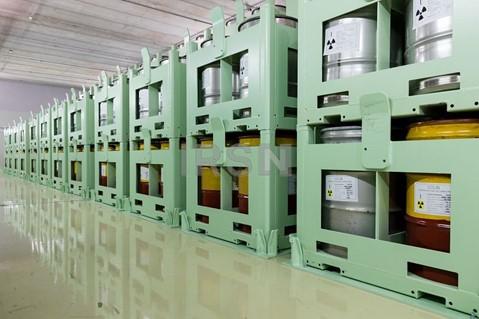
Regulatory Control of Safety for Spent Fuel and Radioactive Waste Management
A course on the Regulatory Control of Safety for Spent Fuel and Radioactive Waste Management is offered. It examines the necessary regulations and best practices for minimizing environmental and public health risks related to the management of these materials.
These courses provide a comprehensive set of skills needed to ensure safety, security, and risk management in the nuclear sector, combining theoretical approaches with practical exercises to train professionals to meet the challenges of the industry.
IRSN Academy adapts to your needs
If you would like training courses that are not included in the catalogue, "tailor-made" courses can also be created on request. Please do not hesitate to contact us to discuss your specific requirements. (contact: training-tutoring@irsn.fr).
Tutoring at IRSN Academy
IRSN Academy offers tutoring in nuclear safety and radiation protection for professionals.
Our tutoring guarantee exposure to the real practice of day-to-day assessment and regulatory work in large and highly experienced nuclear safety organizations. In order to improve the skills of young professionals and newcomers to nuclear regulatory control. For this, we provide all the basic knowledge required to strengthen the competence of experienced professionals. Thus, the level of competence and knowledge of trainees is significantly increased, and their networking opportunities are substantially enhanced.
If you want more information about IRSN Academy’s tutoring, contact us at: training-tutoring@irsn.fr
Tutees and trainees speaking
A unique feature of IRSN Academy is its global reach. As you can see by the comments below, trainees and tutees come from all over the world to attend IRSN Academy courses. Subsequently, belonging to the IRSN Academy community means being part of a network of senior and junior experts spanning Europe, Africa, the Americas, and Asia. There is no better place for cross-fertilization of best practices.
Moreover, most IRSN Academy trainees and tutees hold a position in an organization where they are tasked with a given scope of activity. As a result, by providing them with deeper knowledge of their own specialty and a broader approach to related subjects, an IRSN Academy internship enhances their “employability” and opens up new horizons in their career.
The testimonies
-
In the tutoring on Decommissioning Safety hosted by IRSN as part of the EU’s INSC program, I gained in-depth knowledge of three major issues: the final shutdown of a research reactor, the safety of research reactor decommissioning, and the management of waste from decommissioning. In each sub-topic, the tutoring starts with a brief but clear explanation by tutors followed by an assignment with a designated deadline. Before reaching the deadline, the tutee presents his/her work, reviewed by the tutors who make remarks and suggestions. This process is a good approach, as it helped me cover the different aspects and materials of the tutoring.
As a staff member of BAPETEN’s Directorate for Inspection of Nuclear Installation and Nuclear Material, I am tasked with developing inspection guidance. My involvement in the tutoring has enhanced my knowledge and skills to develop such guidance, especially for the decommissioning stage. In my office, I am also involved in the Decommissioning Plan review process and I am part of a team dealing specifically with the decommissioning of research reactors. The tutoring has given me a solid basis in decommissioning issues that I intend to further develop in the future, in particular as regards characteristic survey and final survey issues that are not yet covered by the tutoring.
Joko Supriyadi
Directorate for Inspection of Nuclear Installation and Nuclear Material, Indonesian Nuclear Energy Regulatory Agency (BAPETEN). -
I am working as a nuclear safety engineer in the Deterministic Safety Analysis Team of the Department of Nuclear Energy, part of the National Center for Nuclear Research, which is involved in the project called “Swierk Computing Center (CIS)”. The project aims to develop high-powered computing clusters and applications that would meet the growing safety requirements of the Polish power generation sector, both conventional and nuclear. I am focusing my work on deterministic computer codes used to model the behavior of NPP systems during severe accident conditions. I use the codes to model severe accident scenarios for present and future designs of LWRs, as well as for Generation IV reactor.
Within my organization, I am one of the people tasked with integrating the ASTEC code for severe accident calculations into future projects. That is why I attended the IRSN course designed to introduce the capabilities, objectives and functioning of the code. This type of training, especially with the experts who work with the code on a daily basis, is the most efficient way to start using this new code.
My expectations were very high, because severe accident codes are usually tools with a high degree of sophistication and complexity, and presenting them clearly is a demanding task. But during the training, the experts provided detailed explanations of the code’s structure, the applicability of the individual modes and the basics of their use. The features presented were helpful and would be very beneficial to first-time users of the ASTEC code. My participation in the training will have a strong impact on my future work with the ASTEC code, as it gave me basic knowledge of how to work with it.
Eleonora Skrzypek
Deterministic Safety Analysis Expert, Polish National Center for Nuclear Research -
I am from the Licensing Review and Evaluation Section of the Nuclear Regulatory Division (NRD) of the Philippine Nuclear Research Institute (PNRI).
Concerning my job, I am assigned to review and evaluate license applications for the use of radioactive materials in industry, medicine, research, and education, and for the distribution of radioactive materials in the Philippines. I also review and evaluate license applications for atomic energy facilities such as particle accelerators. And I am one of the lecturers at our Nuclear Training Center. I learned about the IRSN training courses from an invitation sent to the Philippine Nuclear Research Institute (PNRI). My immediate supervisor recommended that I take the training, since I expressed interest in attending the training, where I expect to enhance my knowledge of radiation protection of workers, the public and the environment. I took the training course on Radiation Protection and Confinement on 21-25 January 2013 at IRSN.
In the lectures given to us, I found the following topics to be of particular interest: optimization of radiation protection; radiation protection of the public in normal operations; and radiation protection of the public in accidental situations. I am able to apply the enhanced knowledge on radiation protection I gained during the training to my daily evaluation and review of license applications for radioactive materials. Moreover, I am able to include some of the information I got from the radiation protection training in my lectures at our Nuclear Training Center. The topics discussed during the training session are useful in the preparation of the draft new nuclear and radiation safety law and in the planning of the regulatory staff training programs for nuclear power.
Thelma P. Artificio
Licensing Review and Evaluation Section, Nuclear Regulatory Division, Philippine Nuclear Research Institute -
Jean-Faustin Sabouang is a radiation protection expert from the Cameroon National Radiation Protection Agency (CNRPA), the regulatory body, where he is tasked with assessing license applications submitted by organizations whose workers are exposed to radiation in the normal course of their day. At the end of 2012, he decided to apply for a tutoring session on internal dosimetry at IRSN.
“CNRPA had set up a program for radiological monitoring of workers exposed to radiation, for instance in hospitals with nuclear medicine facilities or in research laboratories, but this program was previously limited to external exposure, and it seemed essential to include internal exposure as well,” Jean-Faustin explains. His objective for this tutoring was to build skills in internal exposure monitoring with a view to revising the CNRPA’s regulatory scope to include this type of exposure. “I had prepared a kind of roadmap for my tutoring, where I had listed the items I wanted to be addressed, in particular concerning the monitoring of workers in the nuclear medicine sector. And I must say, the tutoring given by Céline Challeton-de-Vathaire of IRSN met my expectations in terms of the knowledge I gained, as I could understand in detail the process of internal dose assessment, as well as the regulatory framework for this kind of activity,” he concludes.
Jean-Faustin Sabouang
Executive Scientist, Authorization, Recording and Licensing Department, Regulation and Control Division, Cameroon National Radiation Protection Agency
